UTIs and the Elderly, a Dangerous Combo
HEALTH
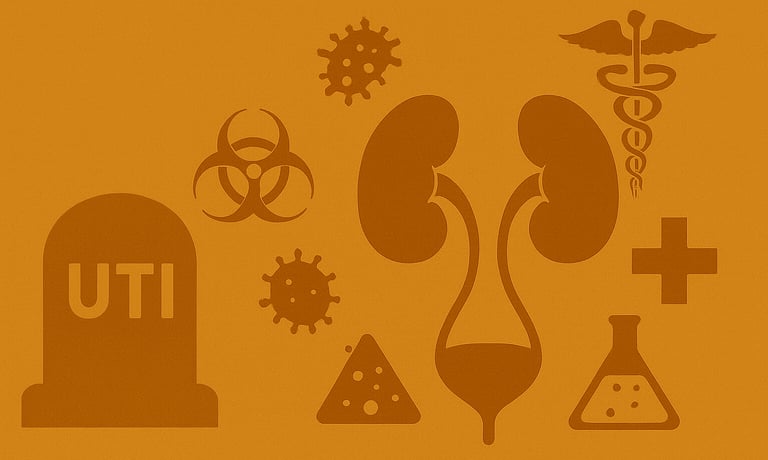

In the elderly, a UTI can escalate into a hospitalization, or worse...
An Almost Deadly Summer
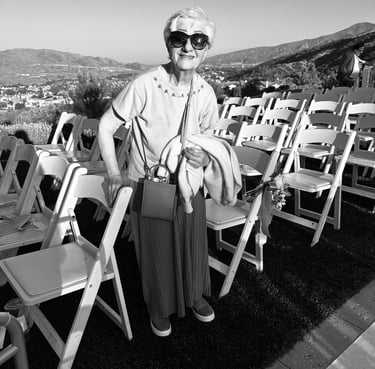

Last summer, my mother and I traveled to California for my cousin's wedding. A few days later, she was in the Emergency Room (ER), getting a dose of IV antibiotics for a UTI. The next day, she was admitted to the hospital for sepsis, an often fatal response to infection, and just like that, I could have lost her. Below are a few key stats and lessons learned...the hard way.
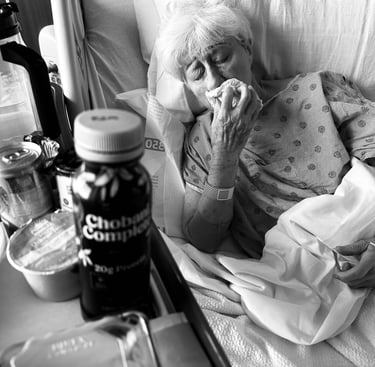

Why You Need to Act Fast


UTIs are responsible for around 25% of all geriatric hospitalizations, according to a study by C Dutta published by the National Institutes of Health (NIH).
33% of functionally dependent geriatric patients with UTIs died during their hospital stay, according to a study conducted by the Annals of Translational Medicine
While prevention is ideal, catching and treating the infection immediately is critical. In my experience, this applies to any illness in the elderly, particularly when multiple health issues are present.
Whether the body is too frail to fight an infection or there are pre-existing conditions, the UTI can become the tipping point between life and death.
Why Common UTI Symptoms Are Hard to Spot in the Elderly


Unlike respiratory illnesses, which are accompanied by an audible cough or visible runny nose, easy for a caregiver to spot, common UTI symptoms are experienced privately and require your loved one to communicate those symptoms with you... that is, if your loved one even experiences the symptoms at all. That's right, to complicate matters, the elderly might not experience the same symptoms the general population experiences.
Feel the burn? Probably not. As we age, we might not experience the burning sensation often associated with a UTI because we can lose our sensation "down there" (a medical professional shared that tidbit with me), so the chances that your loved one will "feel the burn" are slim.
Can you identify the odor? I hope so! Another tell-tale symptom of a UTI, foul-smelling urine, might be present, but your loved one needs to have the ability to recognize the unusual odor and communicate that with you or you need to be close enough to smell the odor.
Meanwhile, the undetected UTI can continue to fester. The good news is that through a stroke of divine genius, visible UTI symptoms do exist in the elderly; they are just atypical.
UTI Symptoms in the Elderly
I'm going to share the "by the book" symptoms of UTIs in the elderly and then I'll share my perspective. According to an NIH study, "UTI manifests more commonly for this age group as delirium or confusion in the absence of a fever."
Other symptoms include:
hypotension (low blood pressure),
tachycardia (faster than normal heart rate)
urinary incontinence,
poor appetite
drowsiness
frequent falls
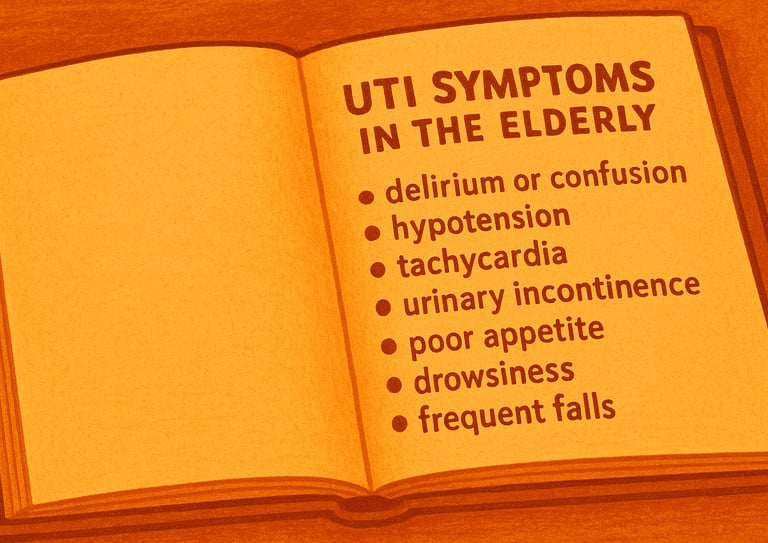

How to Spot a UTI in Your Elderly Loved One, A Caregiver's Perspective
As a caregiver, I have observed that any behavior that makes you go "Huh..." or "hmmm, that was weird..." can be a sign of a UTI. The situation reminds me of how a laptop or behaves when it malfunctions. In addition, UTI symptoms are unique to the individual. Despite my mother's dementia, she did not display delirium or confusion. She was, however, very fatigued, much more than normal, and her heart rate was lower than usual. I have categorized UTI symptoms into two categories, atypical and extreme.
Atypical (or peculiar) behavior: Any deviation from standard behavior could be a symptom of a UTI in an elderly person. For example, I have heard of loved ones fainting and even disrobing in public places.
Extreme behavior: If your loved one is exhibiting more of the same behavior than usual, that can also be a sign of a UTI. For example, my mother typically experiences fatigue and takes naps, but she was "napping hard" and walking much more slowly than usual.
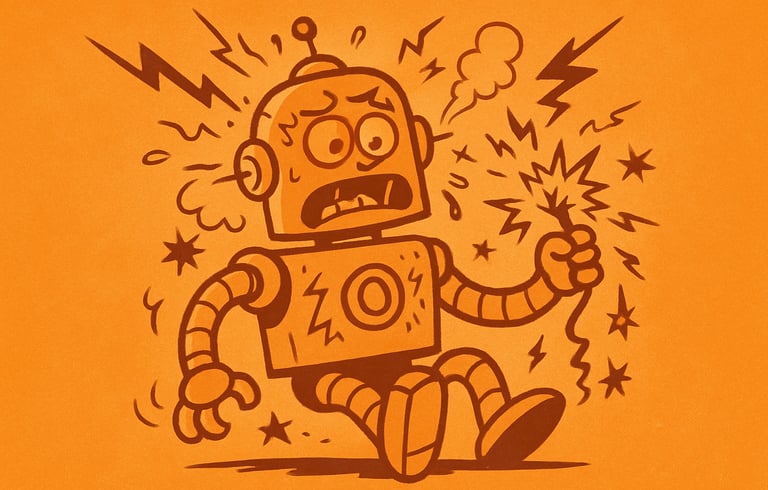

Pro Tip: Know your loved one's baseline behavior. If you spot any deviations, seek medical attention. If it's not a UTI, it could be something else...
What We Take for Granted
In youth (or relative youth), we can take a lot for granted, especially when we bounce back after an illness, and the illness "stays in its own lane" so to speak. For example, a respiratory infection typically remains confined to the respiratory system. My mom's UTI, however, showed me how much an elderly body goes through to fight off an infection.
In the elderly, the whole body jumps in... "all systems go" is an applicable description - the heart, the brain... every vital bodily system is on alert and can be susceptible to the effects of the infection. In my mother's case, her heart, the most compromised of her vital organs, is where her UTI symptoms showed up the loudest, and where I saw the most "malfunction".
After a couple of close calls, including this one, I realized I had to make the choice to prioritize immediate care, even for what might seem like a minor issue. Depending on the condition of your loved one, anything can quickly snowball into a hospitalization or worse.
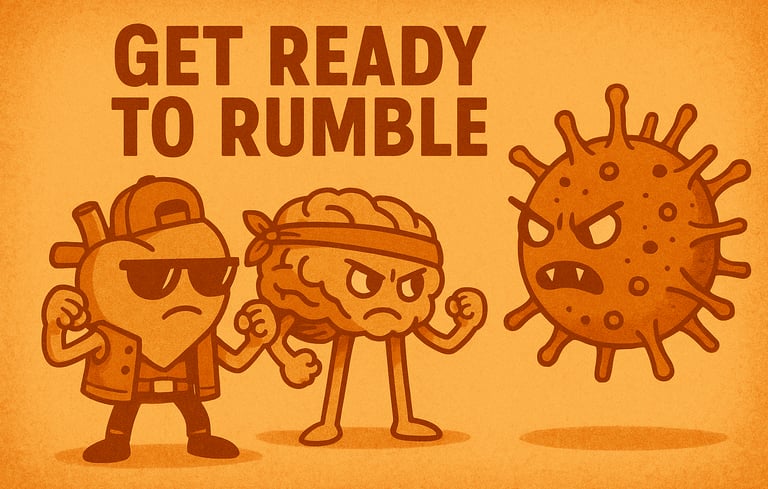

What Causes a UTI in the Elderly
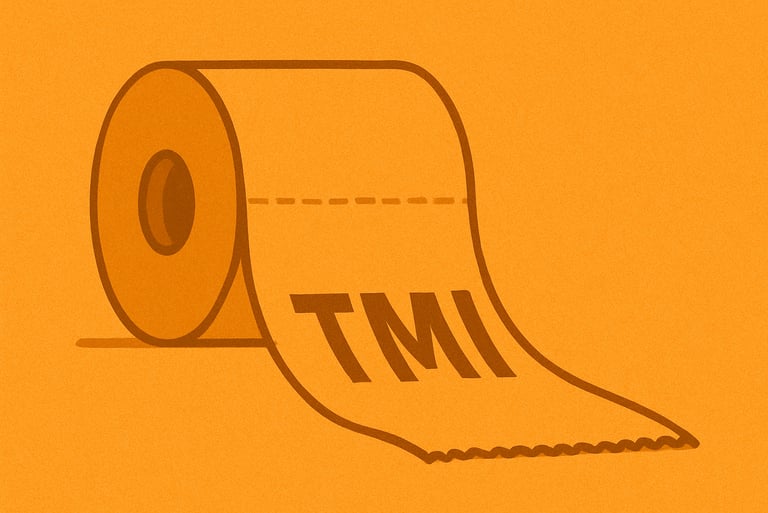

According to a conversation with one of my mom's doctors, poor hygiene "down there" is the most common cause of UTIs in the elderly; he specifically mentioned fecal matter as a very common culprit. Fecal matter finds its way into the urethra, and a UTI is born. Public toilets and activities you might not want to think about your elderly loved ones engaging in are other causes.
UTI Prevention in the Elderly


This topic is very much TMI and yet also very critical. UTI prevention is all about keeping bacteria out of the urethra, so cleanliness down there is key, and so is proper wiping. One must wipe from front to back, not back to front. Wiping from back to front can drag fecal matter into the urethra.
After my mother first had her stroke, she was getting UTIs frequently. One nurse told me that D-Manose can help keep bacteria from "sticking" to the urinary tract. Another mentioned that cranberry extract can also be helpful.
What You Need to Know about UTIs in the Elderly
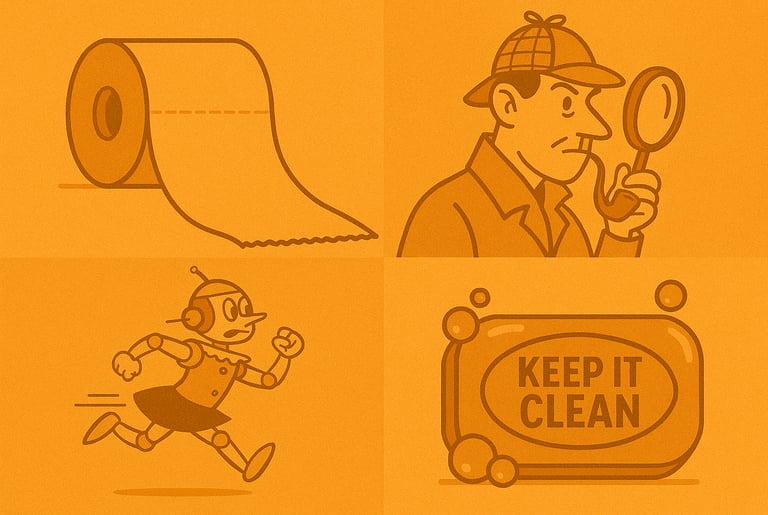

UTIs are a leading cause of death in the elderly
Be on the lookout for unusual or extreme behavior as a symptom of UTIs in the elderly
Seek medical attention quickly to treat the UTI and prevent hospitalization or worse
Prevent UTIs with proper hygiene and wiping from front to back
